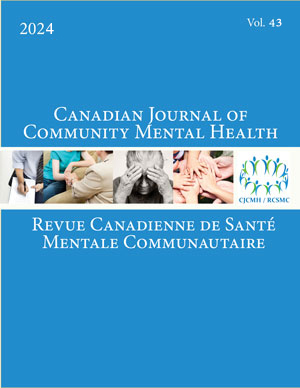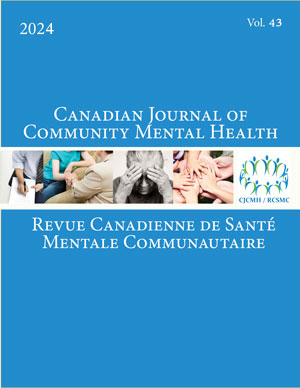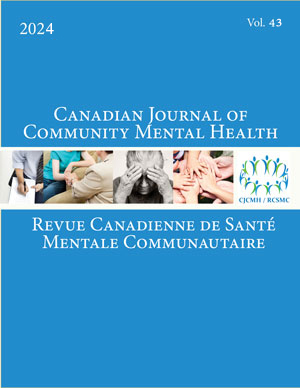Volume 33 • Number 1 • July 2014
Special Issue
OPEN ACCESS
Romantic relationships emerge in the early adolescent years and mature over the course of adolescence from initial cross-gender affiliations to dyadic partnerships. Adolescents’ romantic relationships are important because they contribute to relational development and foretell the quality of intimate relationships in adulthood. This paper summarizes current research findings on the development of romantic relationships, focusing first on the normative stages of mainstream youth and subsequently on atypical patterns of troubled youth. Peer and family influences on romantic development are considered as well as ethnocultural variation. The paper concludes with several policy implications for community mental health.
OPEN ACCESS
An overview of recent research describing adolescent sexual development is presented, including research examining puberty, sexual attitudes and behaviours, and LGBTQ youth and stigma. This overview is placed within the context of the healthy sexual development framework and the four domains of development (physical, social, cognitive, and emotional) incorporated in the Ontario Ministry of Children and Youth Services’ youth policy framework. Finally, recommendations are made for future community mental health research and policy.
OPEN ACCESS
The ability to regulate how emotions are experienced is central to psychological well-being. Developmental changes in emotion regulation (ER) strategies are unclear in the literature. Thus, a systematic review of the research literature was conducted in order to (a) describe normative ER development across childhood, adolescence, and emerging adulthood, (b) describe the patterns and processes of specific ER strategies, and (c) identify and describe the influence of specific individual factors on ER. Fifty-five studies were identified that examined key ER strategies across development. The findings highlight the importance of facilitating adaptive ER strategies among children and youth.
OPEN ACCESS
Most children with developmental conditions survive to adulthood. To improve adult outcomes there is a need to synthesize our existing knowledge regarding their developmental trajectories. The synthesis in this paper was guided by interactional, life course perspectives and definitions of development and disability. Evidence from 107 published articles, grey literature, and expert opinion demonstrated that there are currently more negative than positive psychosocial and mental health outcomes for youth with disabilities. Evidence is mounting that youth with disabilities experience similar trajectories to their peers without disabilities through positive, developmentally appropriate life experiences and regular opportunities with adequate supports to develop adult social roles.
OPEN ACCESS
This paper provides a conceptual synthesis of literature that addresses intersections of mental health, poverty, and school. It is based on a research synthesis for the youth policy framework for Ontario, Stepping Stones. The paper addresses research on challenges involving income inequality, poverty, and mental health that impinge upon school, and examines the enduring ill effects of these issues and academic struggles on young lives. It suggests practices that show promise to support youth. Findings suggest that transitions through school involve multiple developmental negotiations and are a critical site of slippages and successes. The paper ends with a set of reflective questions around age out (of the child and youth services system), the need to address stigma by animating the abundant character of young lives (addressing the subtleties and nuances of the life stories, biographies, and narratives of young people and their communities), the need for authentic collaborations across health and education, and working with and for young people as they collectively and individually determine and negotiate their lives.
OPEN ACCESS
This paper provides a review of mental health and developmental issues specific to the phases of adolescence and emerging adulthood. Prevalence estimates highlight the frequency and severity of mental health difficulties in this age cohort, and point to the pressing need to integrate a developmental perspective in planning support, prevention, and intervention services. A brief overview of common mental health issues is provided, as well as a consideration of relevant developmental trajectories and variations. Using a health equity lens, we discuss diversity issues in relation to transition-aged youth. Conclusions include recommendations to enhance the system of care for transition-aged youth.
OPEN ACCESS
Articles
OPEN ACCESS
Suicidal behaviours in young people are among the most challenging issues faced by educators, policy makers, and practitioners. A small number of youth suicide prevention programs have been identified as promising. At the same time, many contemporary approaches to youth suicide prevention take insufficient account of the social or cultural context and privilege the expertise of adults and researchers. In large part, this is a consequence of how scientific knowledge is constructed. By engaging young people as knowledgeable collaborators and by paying attention to broader socio-political and cultural contexts in understanding sources of suffering, a more flexible and enriched approach to youth suicide prevention research and practice is envisioned.
OPEN ACCESS
Community psychologists offer relevant tools for pursuing critical reflection on the nature of social policy, with special consideration of power inequities that often arise from the misrepresentation of affected stakeholders. This article examines the critical role researchers and community health practitioners can play in guarding against the misrepresentation of community voices in neoliberal policy environments. We identify the extreme harm caused by socially exclusive policy-making in an examination of the institutional oppression of Aboriginal peoples across Canada. We caution against the dangers of perpetuating neoliberal agendas and token participation via the misuse of community engagement. We emphasize the important role of community psychologists in challenging the status quo, for engaging stakeholders in authentic participation, and in policy development. We conclude with recommendations to broaden and improve the policy skills of community psychologists and other mental health professionals to more effectively advance social policy and actualize the potential for transformative social change in Aboriginal communities.










